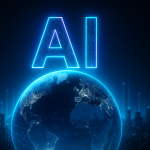As artificial intelligence reshapes numerous sectors, OpenAI introduces strategic initiatives to bridge the skills gap in the workforce. By launching a job platform and a certification program, OpenAI focuses on harnessing AI’s potential while addressing its disruptive implications. Together, these initiatives aim to equip individuals with AI skills and connect them with employers, thereby fostering economic growth. The company’s approach not only targets large enterprises but also supports local businesses and governments in finding the required talent.
In recent endeavors, OpenAI announced the OpenAI Academy, a free educational platform showcasing videos and tutorials about AI. This move aligns with its current efforts to enhance AI literacy and provide career pathways. Previously, OpenAI’s focus was more on providing foundational knowledge, but with the new initiatives, the focus extends to certification, thereby elevating the skill set to meet professional demands.
What Does OpenAI Offer?
The new job platform will utilize AI to match skilled candidates with businesses, directly addressing the talent shortage in the AI sector. According to Fidji Simo, OpenAI’s applications CEO, the platform not only targets large firms but actively involves local businesses and governments in the search for AI expertise.
“Importantly, the jobs platform won’t just be a way for big companies to attract more talent,”
says Simo, emphasizing that a broader segment of the market will benefit.
How Will the Certification Program Work?
OpenAI’s certification program is designed to verify candidates’ proficiency in AI, aiding businesses in making informed hiring decisions. The certification will cover various proficiency levels from basic concepts to advanced skills like prompt engineering. The initiative aims for inclusivity, striving to certify 10 million Americans by 2030. This goal reflects a commitment to comprehensive upskilling efforts that meet both worker and industry needs.
“We realize the upskilling or reskilling programs have a mixed record,”
acknowledges Simo, aiming to create programs that are more impactful.
The organizational focus also extends to creating accessible resources for individuals preparing for these certifications. The tools and materials available are designed to integrate seamlessly into companies’ existing training and development efforts. This approach allows businesses to smoothly adopt the certification program as part of their talent development strategies.
By leveraging past experiences in the field, OpenAI is confident in designing programs that better align with the burgeoning demand for AI expertise. The efficacy of technology-centric education programs has been variable, but OpenAI’s strategic planning could potentially yield better employment outcomes and higher wages. Companies and job seekers alike stand to gain from a targeted and thoughtful approach to AI skill acquisition.
Anticipating AI’s continued impact on the economy, these initiatives position OpenAI as a catalyst for workforce evolution. The strategic rollout of the job platform and certification program is poised to play a critical role in AI’s trajectory within the job market. Concrete targets such as certifying millions by 2030 signifies a concrete step toward bridging the gap between AI technology and available human resources.










